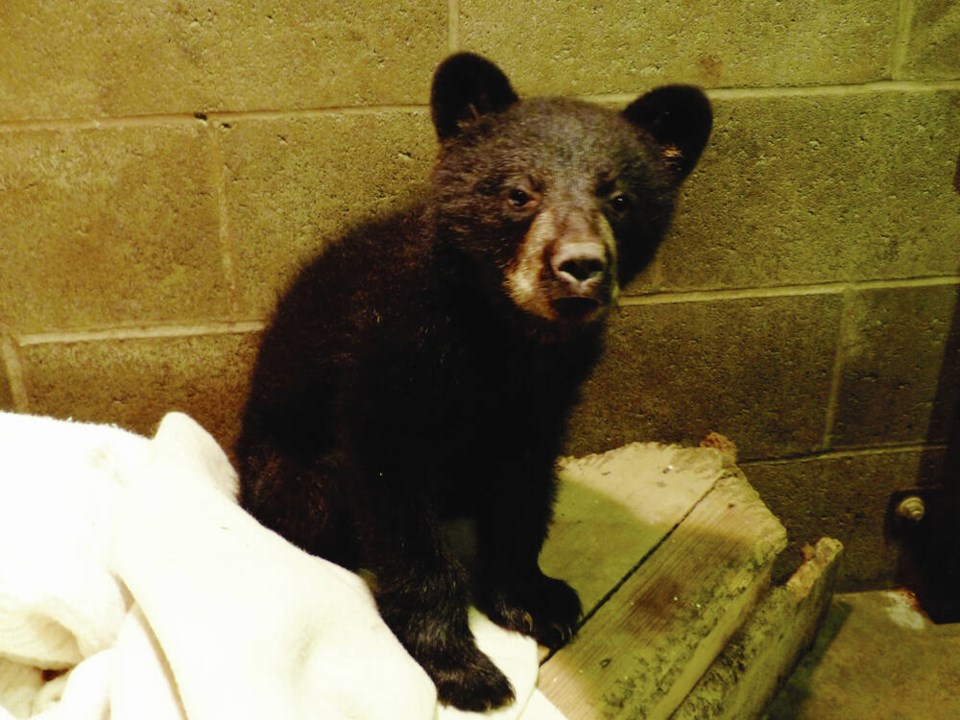A mother bear was struck and killed by a vehicle along West Coast Road near Sooke on Thursday night — and now the hunt is on to save her three cubs.
The three cubs were not injured and vanished into the woods after the incident, which occurred about 11 p.m., the Conservation Officer Service said.
Officers went to the scene early Friday morning, but found no cubs in the area.
The service said in an email that it was not the same bear family that officers were monitoring in Colwood.
The number of bear sightings on the West Shore and Sooke areas has increased this month, as black bears increase their feeding to start the hibernation process.
The Conservation Officer Service is liaising with wildlife biologists from the Ministry of Water, Lands and Resource Stewardship and the North Island Wildlife Recovery Centre, a permitted rearing facility based in Errington, to facilitate the safe capture and transfer of the cubs.
A spokesperson for the North Island Wildlife Recovery Centre said Friday that staff were headed to Sooke to help conservation officers track the cubs.
The facility already has one cub in care that was found alone on an Island roadside this fall.
Mollie Cameron of Sooke WildWise Society said in a posted to Facebook that the sow and cubs had been spotted in the Sooke area for weeks feeding on garbage left out by residents.
“Unfortunately, those animals have been accessing unsecured attractants, including garbage,” said Cameron. “When that happens and bears are accessing garbage at a consistent rate, it brings them very close to our communities and close to roadways.
“Unfortunately, one of those animals has now lost their lives.”
Cameron said the incident points to the need for people to secure their garbage, since when bears have access to unsecured food sources, they can get bold with people. “Those are the bears that ultimately become a risk to public safety and end up losing their lives.”
Tranquilizing and relocating bears isn’t always an option, she said.
Often, when bears are relocated, they return to areas where they’ve been able to access food, Cameron said.
In other cases, a bear can be relocated, but the behaviour just persists in a new area if they find more unsecured garbage to go after. “And if we’re relocating a bear to an area where there’s a more dominant bear or more dominant predator, that animal might end up losing its life.”
The Conservation Officer Service has a checklist for managing bear conflicts at .
The public is asked to report any cub sightings to the Report All Poachers and Polluters (RAPP) hotline at 1-877-952-7277.



